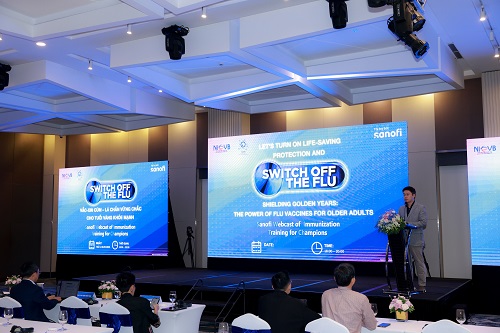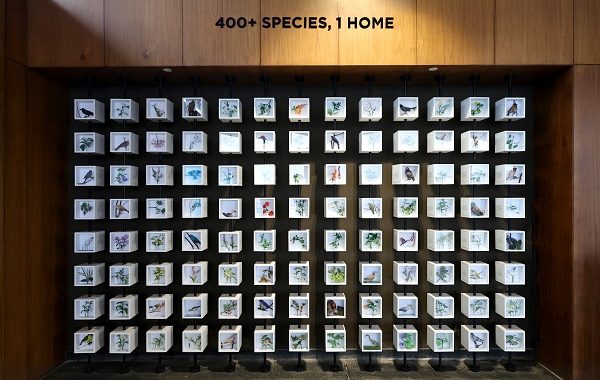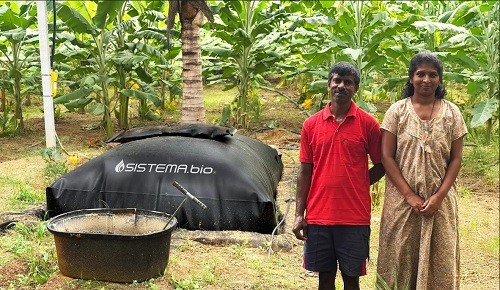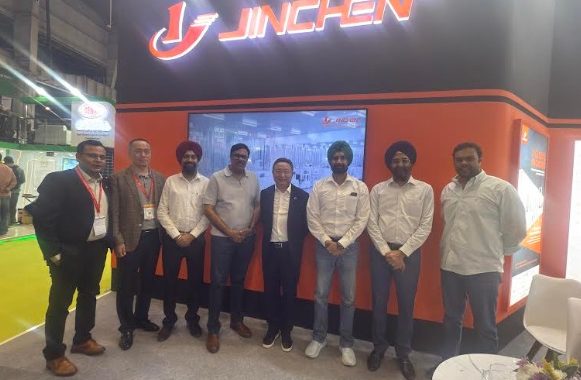National Conclave on ‘Social Enterprises for Garbage Free Cities

National Conclave on ‘Social Enterprises for Garbage Free Cities’: Encouraging Women Entrepreneurs in Waste management
Swachh Bharat Mission-Urban 2.0, under the aegis of the Ministry of Housing and Urban Affairs (MoHUA), is organizing a National conclave on ‘Social Enterprises for Garbage Free Cities: Encouraging Women Entrepreneurs in Waste management’ in Raipur, in collaboration with the Government of Chhattisgarh, on 3 March 2022. Various dignitaries, including Urban Development Minister, Chhattisgarh, Mayor of Raipur Municipal Corporation, Secretary, MoHUA, and Chief Secretary Chhattisgarh are expected to participate in the conclave. The day-long event will serve as a platform for peer learning for States and Urban Local Bodies (ULBs) on various centralised and decentralized waste management practices, as part of the Mission’s capacity building initiatives. The event will also witness the release of the “National Capacity Building Framework for Garbage Free Cities” under SBM-Urban 2.0, which will help build capabilities of relevant stakeholders to strengthen the urban sanitation sector in the country.
Representatives from nearly 17 States and their ULBs, including from North Eastern States of Assam, Arunachal Pradesh and Nagaland, Union Territories such as Jammu & Kashmir, Chandigarh and Ladakh, and major States such as Madhya Pradesh, Maharashtra, Uttar Pradesh and Tamil Nadu are expected to participate in this day-long conclave, which will include a multitude of activities to engage participants. The day is scheduled to begin early in the morning on a different note, with participants engaging in an on-ground cleanliness drive on the banks of the Mahanadi river, alongwith NCC cadets. This would be followed by a visit to the Solid Liquid Resource Management (SLRM) Centre at nearby Patan. The segregated waste collected from households are brought to the SLRM centre where inorganic (dry/ non-bio-degradable) fractions are further sorted into various subcategories, for subsequent recycling/ processing and value recovery. Participants will engage in ‘shramdaan’ at the SLRM centre and physically sort some of the dry waste into further fractions, to help sensitise them about the importance of such multiple sorting and segregation for ease of subsequent disposal to recover maximum value from waste. Thereafter, participants will be taken on field visits to a vermi-composting centre for demonstrating scientific, value-added processing of segregated wet waste to compost, and to the Integrated Solid Waste Management facility in Raipur. A key attraction of the day-long event will be presentations of various women-led waste management initiatives from across the country, in the afternoon sessions. For example, Hasiru Dala, a Bangalore-based organization works with waste pickers to transform them into waste entrepreneurs, thereby helping to improve their quality of life and livelihood. Cuttack Municipal Corporation in Odisha is working to economically empower transgender-led self-help groups by engaging them as waste operators. Pune’s Red Dot campaign by SWaCH co-operative is working to spread awareness regarding menstrual health, along with safe and sustainable disposal of sanitary waste. In Tiruchirappalli, Tamil Nadu, women-led self-help groups termed “SHE teams” have set up entrepreneurial ventures for operating and maintaining community toilets in slums, and spreading awareness regarding healthy sanitation and hygiene practices in slum communities. In Gurugram, Haryana, Saahas NGO, in collaboration with the Municipal Corporation is spearheading the ‘Alag Karo Campaign- Har Din Teen Bin’ to create awareness and implement source segregation of municipal solid waste into three fractions – wet (bio-degradable), dry (non-biodegradable) and domestic hazardous – by residential communities. Other highlights of the day’s event will include a fireside chat between a Swachh Bharat ambassador and Chhattisgarh’s Swachhata didis to highlight the achievements of women champions in Chhattisgarh who are working tirelessly to transform the State’s urban landscape, and the launch of theme song ‘Swachhata Jaari Hai’. The event will also be webcast live on various online channels and social media platforms so that cities may also participate virtually.
Over the past seven years, the Swachh Bharat Mission-Urban has harnessed the commitment of a hundred and thirty crore citizens towards building a ‘Clean India’ through the largest urban sanitation revolution in the world. The transformation in the country’s cleanliness over this period has been remarkable, with all 35 States and Urban Territories (UTs) created Open Defecation Free (ODF), the practice of segregating waste at source adopted across 87% of wards in the country, and waste processing gone up by nearly 4 times, from 18% in 2014 to 71% at present.
In this journey of swachhata, Chhattisgarh has been adjudged the Cleanest State in India (in the category of ‘more than 100 ULBs’) for 3 years in succession under Swachh Survekshan, as well as the Best State in the SafaiMitra Suraksha Challenge run by MoHUA. Among its Urban Local Bodies, Ambikapur and Patan have been adjudged as 5-star Garbage Free Cities, while 44 ULBs have been certified as 3-star Garbage Free cities.
On 1st October, the Prime Minister launched the Swachh Bharat Mission – U 2.0 with the overall vision of creating “Garbage Free Cities”. The Mission is being implemented under the overarching principles of “waste from wealth”, and “circular economy” for maximising resource recovery. In the process, the Mission is focusing on creating an enabling eco-system for opening up of entrepreneurial opportunities in the sanitation sector through social enterprise development, especially among the economically weaker sections of society, and including women empowerment. Recently, a Swachhata Startup Challenge has been launched by the Mission, in partnership with Government of France. The Challenge aims to promote an enabling environment for development of startups and entrepreneurs, including women-led ventures, in the waste management sector, and is expected to identify innovative solutions across various themes, viz (i) social inclusion, (ii) zero dump (solid waste management), (iii) plastic waste management, and (iv) transparency through digital enablement. The winning solutions will receive financial support of ₹25 Lakhs per selected project and 1-year dedicated incubation support from French Tech.
For regular updates, please follow the Swachh Bharat Mission’s official website and social media properties: Website: www.swachhbharaturban.gov.in / Facebook: Swachh Bharat Mission – Urban| Twitter: @SwachhBharatGov/Instagram:sbm_urban | Youtube: Swachh Bharat Urban
****
Also See:






